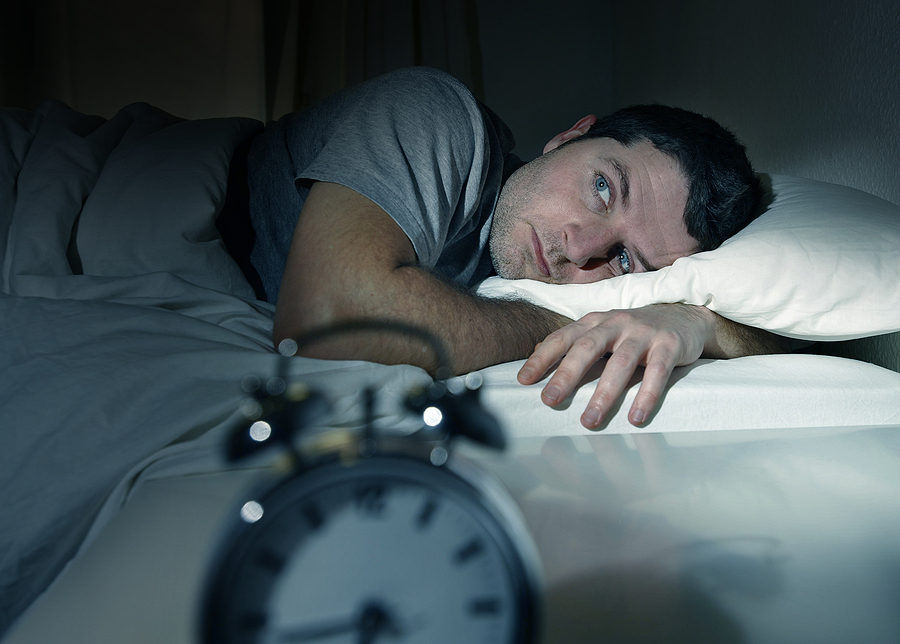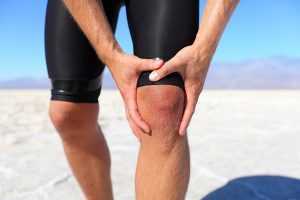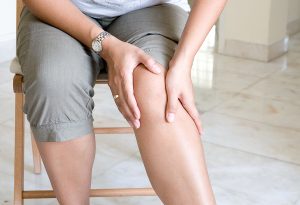The CDC reports that about 38% of adults don’t get enough sleep. Ideally, you must get at least seven hours of sleep each night. Doing so helps your body in many ways both physically and mentally. How much sleep do you get as an athlete?
Poor sleep quality night after night after night increases the risk of mental strain, lost focus, and chronic health conditions like high blood pressure. It also makes you more likely to experience an injury during a game or warm-up. Our doctors at Premium Sports and Orthopedics want you to know that sleep is crucial to athletes.
Why Is Sleep So Important?
While you sleep, your body is busy doing things that are harder to do when you’re up and active. Tissue repair takes place. Cells get to work repairing tears to muscle and tissue. They also help with muscle and cell growth. It helps your immune system function properly, which is important for fighting inflammation. Muscle and cell repair processes are one of many aspects of physical recovery that your body undergoes.
As you sleep, the process of recovering and storing energy takes place. Your body’s hormone regulation process also takes place, which is important for overall health. These measures all aid the immune system, which is critical for preventing damaging inflammation and fighting infections. As you sleep, blood chemicals that help the immune system get to where they need to be to boost immunity.
At the same time, you’re asleep, which frees up the brain to undo any damage. This helps during the daily routine of staying focused and concentrating, making decisions, and reacting to different stimuli and dangers. Sleep also helps with the regulation of blood chemicals that impact your stress levels and mood. If you get enough sleep, your mood improves, and that can boost positivity during a game or match.
How Does Lack of Sleep Increase the Risk of Injury?
If you look at all that goes on while you sleep, you gain an understanding of how this can prevent injuries during a sports practice or game.
Immune Function
When you don’t get enough sleep, your immune system can’t work effectively. This increases the risk of an infection if you fall or get hit and have a cut or scrape. Your body will need more time to recover from a sprain, strain, fracture, or tear. It also makes it harder for your body to fight off the germs that others spread on planes, in locker rooms, or public areas.
Lack of Coordination
When you’re tired, you’re going to be clumsier. You have a higher risk of tripping or slipping and falling. You’re more prone to losing your balance and being unable to recover traction before you fall.
Fatigue and Forgetfulness
Finally, overtired athletes often experience mental fatigue that makes it hard to concentrate. You won’t remember a play or you lose focus and fumble a ball unexpectedly.
Are You Finding It Hard to Get Enough Sleep?
What is keeping you from getting enough sleep? For many athletes, the training and game schedules make it impossible to get enough sleep. This is especially true of junior, high school, and college athletes. Think about how these factors all steamroll for a high school student.
Buses for school leave your house or neighborhood at 7 a.m., so you’re up at 6 a.m.
You have school until 3 p.m.
Practice runs after classes until 5 p.m.
You have to get home, which also takes time.
You need to eat dinner and help with household chores.
You have homework to do.
You still need time to unwind.
If you’re going to get at least 7 hours of sleep, you need to be in bed by 9 p.m. On nights there are games, it’s worse. Games may start at 5 p.m., and they can last a few hours. The game isn’t over until 8 p.m. or later. You have to get home, eat, do your homework, shower, and get ready for bed well after the time needed to get the full 7 hours of sleep.
That’s just a high school student. For a professional athlete or full-time employee who enjoys pick-up games with friends, it’s just as limiting as managing a job, traveling for work or with your team, family life, friends, household responsibilities, volunteer work, etc. Professional athletes often travel across state lines to other time zones, which makes it even harder.
When you’re a professional athlete, you now have to sleep in an unfamiliar city and bed. The noises aren’t the same. You have to eat on the run, and nutrition can impact your sleep quality, too. It’s a lot to adjust to, but these tips can help anyone get the best sleep possible.
Avoid alcoholic beverages, greasy foods, and sugary treats that provide no nutrition and can impact sleep quality.
Create a routine that you never stray from, such as reading a book for 30 minutes before turning lights off. Some people like to take a warm bath with lavender or chamomile to help de-stress and start relaxing.
Draw room darkening blinds and put stickers over LED lights on things like window AC units, air purifiers, or modems to avoid lighting up your room.
Engage in relaxation breathing, like the type of breathing taught in Tai Chi or Yoga, as you go to sleep.
Maintain proper hydration all day long, but stop about an hour or two before bed so that you’re not getting up repeatedly to use the toilet.
Try to avoid eating right before bed as that can increase the risk of indigestion when you lay down for the night.
Turn down the temperature in the room if possible. Per the Sleep Foundation, a temperature of 65º F is ideal for a good night’s sleep.
Use white noise at home and when away to have consistent sounds that help you sleep. Small desk fans are a great source of white noise that you can bring with you.
If you happen to have the type of brain that can’t shut off as you try to go to sleep, that makes it hard to fall asleep. Sometimes, putting on a podcast about relaxation or some soft music helps. Focus on the words the speaker is saying to quiet your mind.
Don’t Ignore an Injury
Whether poor sleep impacts your focus and leads to an injury, or you’re injured some other way, don’t ignore it. Pain may diminish in time, but you might have done serious damage to a bone, muscle, or ligament. See a specialist in sports injuries to ensure it’s minor and will heal on its own.
You don’t want to follow the general guidelines of RICE (Rest, Ice, Compress, Elevate) and learn after days of constant pain that you actually fractured a bone or tore a ligament. Get a professional opinion to heighten recovery times and ensure proper treatment.
Also, consider talking to the medical team at Premium Sports & Orthopedics about a diet and exercise routine that boosts your nutrition, provides a proper warm-up and cool-down, and makes it more likely that you’ll sleep through the night. A healthy diet, proper exercise routines, and sleep are the trifecta that help athletes win.







